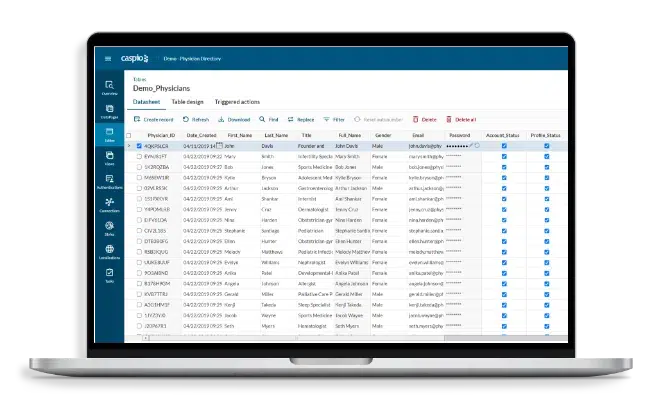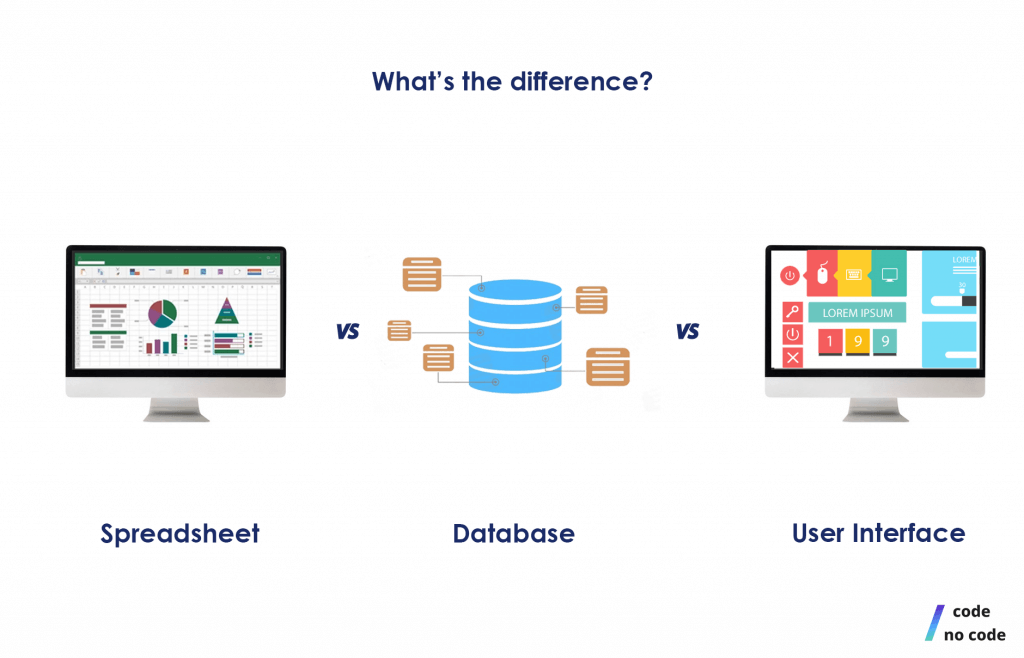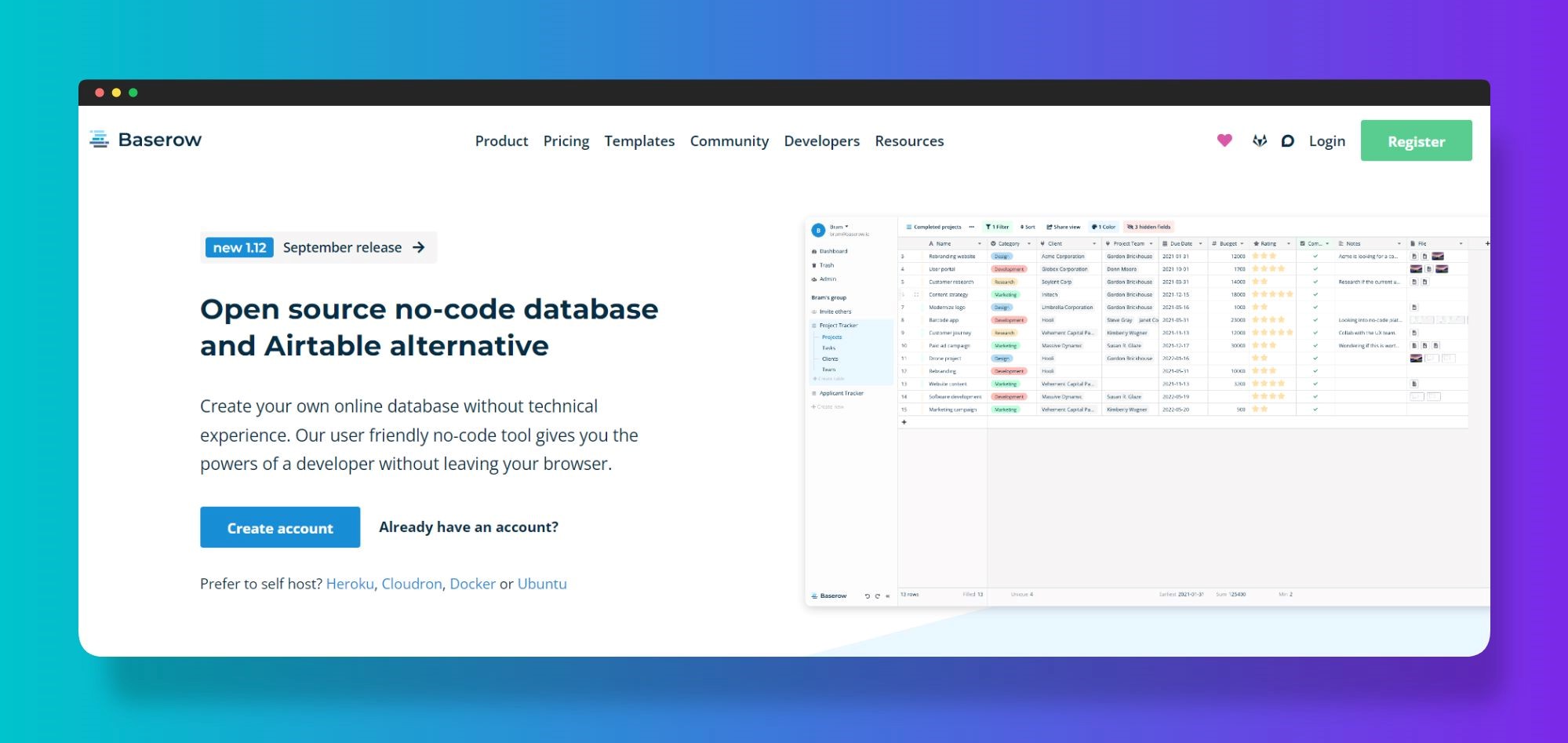Exploring the Benefits of Scalable Databases That Need No Coding Skills for Reliable Data Monitoring Solutions
The introduction of scalable databases that remove the necessity for coding abilities presents a transformative chance for organizations looking for reliable information administration services. As we take into consideration the effects of such advancements, it ends up being important to examine just how they can reshape the landscape of data administration and drive lasting development in a competitive atmosphere.
Boosted Ease Of Access for Customers
Enhanced ease of access for users is an important element of scalable data sources, making certain that data administration systems are easy to use and intuitive. In a period where data-driven decisions are paramount, access allows a broader array of individuals, including those without extensive technical proficiency, to involve with data source systems properly. This democratization of information access facilitates enhanced cooperation throughout departments, empowering workers to make and draw out insights educated decisions.
User-friendly user interfaces, such as drag-and-drop attributes and aesthetic data depiction, streamline complicated information communications. These improvements minimize the learning curve associated with standard data source monitoring, enabling customers to concentrate on leveraging data instead than coming to grips with technological complexities. Moreover, scalable databases frequently include real-time analytics and customizable control panels, providing individuals with prompt insights customized to their specific requirements.

Cost-Effectiveness and Resource Cost Savings
Effective information administration not just pivots on accessibility yet additionally on cost-effectiveness and source cost savings. Scalable databases developed for customers without coding abilities considerably reduce financial burdens generally connected with traditional database management systems. By removing the need for specialized programming competence, organizations can allocate their sources much more successfully, focusing funds on core business tasks as opposed to extensive training or working with proficient employees.
Moreover, these data sources frequently make use of cloud-based services, which further minimize expenses associated with hardware and maintenance. Organizations can scale their data source options according to their requirements, preventing the expenses sustained from over-provisioning resources. This adaptability suggests businesses can adapt to transforming demands without sustaining unneeded expenses, bring about substantial lasting savings.
In addition, user-friendly interfaces simplify data access and management processes, decreasing the time invested in administrative jobs. This performance translates right into labor cost savings, enabling groups to concentrate on strategic initiatives rather than regular upkeep. On the whole, taking on scalable data sources that call for no coding abilities cultivates a much more cost-effective technique to information management, making it possible for companies to maximize their resources while preserving high levels of functional efficiency.
Improved Collaboration Across Teams

In addition, scalable databases help with smooth interaction amongst group members. With easy to use interfaces that need no coding abilities, employees can quickly develop, modify, and share reports or dashboards tailored to their certain demands. This democratization of information empowers non-technical users to contribute understandings, enhancing the collective setting.
Additionally, these databases support concurrent accessibility, permitting numerous customers to service the same dataset concurrently. This function improves performance, as groups can take part in joint information analysis without the danger of version control issues. The capability to leave notes or comments directly within the database further promotes discussion and makes clear information analyses.
Streamlined Information Administration Processes
In today's data-driven atmosphere, organizations acknowledge the necessity of streamlined information monitoring processes to take full advantage of effectiveness and precision. By leveraging scalable databases that need no coding skills, businesses can streamline their information handling and minimize the complexities normally connected with standard database systems. This accessibility encourages non-technical customers to engage directly with information, assisting in quicker decision-making and decreasing reliance on specialized IT personnel.
Streamlined information monitoring processes enhance process by automating regular tasks such as information entrance, validation, and coverage. Automated data integration guarantees that information from numerous resources is aggregated seamlessly, removing silos and fostering an unified view of critical organization metrics (no-code). Easy to use user interfaces enable personnel to control data conveniently, enabling them to create insights that drive critical efforts without the need for substantial training.
This effectiveness not just speeds up functional procedures however also lessens the potential for human error, making certain that information remains exact and dependable. Ultimately, streamlined information management processes via scalable databases cause improved performance, permitting companies to concentrate on core tasks while guaranteeing that their data monitoring techniques are effective and effective.
Scalability for Expanding Services

For expanding ventures, the capacity to scale up or down is vital. A scalable helpful resources data source can deal with an influx of information produced from new consumers, items, or services, ensuring that organization procedures remain uninterrupted. These databases supply the capability to take care of peak tons efficiently, which is necessary during durations of fast growth or seasonal spikes.
Furthermore, numerous scalable data source services are made with easy to use interfaces that need no coding abilities, equipping non-technical staff to handle information successfully (no-code). This democratization of Your Domain Name data administration allows organizations to allocate resources purposefully and minimize dependency on specialized IT employees
Ultimately, embracing a scalable database not just enhances operational performance however additionally fosters an atmosphere where businesses can develop and introduce without the constraints of standard database systems. This versatility placements organizations for lasting success in today's affordable landscape.
Conclusion
To conclude, scalable databases that need no coding abilities provide considerable benefits for efficient data administration. These systems boost ease of access for non-technical individuals, lower operational expenses, and advertise collaboration throughout teams. By enhancing information management processes and supplying scalability for expanding organizations, such solutions enable organizations to adapt to altering needs properly. Inevitably, the adoption of these easy to use data sources cultivates innovation and settings services for long-term success in a vibrant atmosphere.
Enhanced ease of access for individuals is a critical aspect of scalable data sources, making certain that information monitoring systems are instinctive and easy to click use.User-friendly user interfaces, such as drag-and-drop features and visual information depiction, simplify intricate information interactions. Overall, adopting scalable data sources that call for no coding abilities promotes a more cost-efficient technique to data monitoring, allowing organizations to optimize their sources while maintaining high degrees of operational efficiency.
By leveraging scalable databases that need no coding skills, organizations can streamline their information handling and minimize the complexities typically linked with conventional database systems - no-code.Structured data management procedures enhance operations by automating routine tasks such as information entry, recognition, and reporting